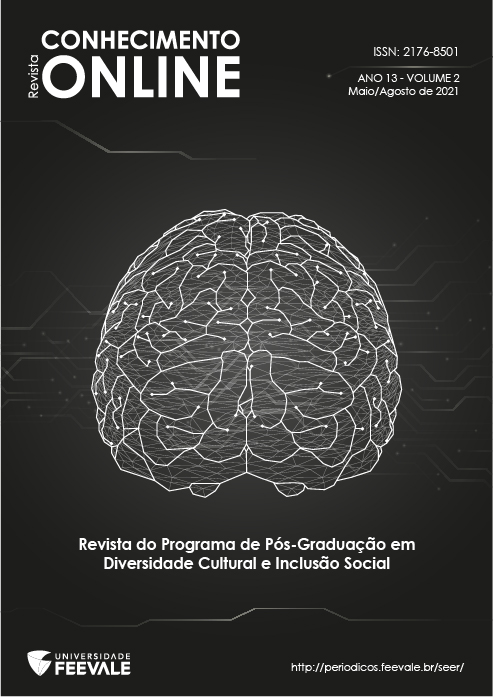PROMISING AREAS OF USING HISTORICAL AND PEDAGOGICAL EXPERIENCE TO IMPROVE THE LINGUISTIC PROFESSIONAL TRAINING
DOI:
https://doi.org/10.25112/rco.v2i0.2380Palabras clave:
Maritime industry, language proficiency, communicative competence, educational policy, historical and pedagogical experienceResumen
In a modern globalized world, knowledge of a foreign language is important, determines the relevance of high-quality training of specialists in foreign language communication. Foreign language proficiency is a significant condition for establishing and maintaining international business contacts, intensifying professional interaction with foreign colleagues. The Bologna Convention also proclaims knowledge of foreign languages as a necessary basis for the mobility of students, teachers and scientists for access to education, research, teaching and training in the European Region. All these factors justify the economic value of knowledge of foreign languages and become an indispensable component of the professional training of future specialists. Competitiveness of specialists depends on the ability to read and translate professional foreign literature, on the formation of skills to listen to lecture material and reports in a foreign language during conferences, round tables and seminars; from the ability to participate in an idiosyncratic conversation on professional and business topics; from the ability to find the necessary information on the Internet or in any other foreign sources; from the ability to prepare and conduct a presentation on a selected topic.
Citas
ABELLA, R. Towards New Technology: Computerisation for Maritime Education and Training at the Philippine Merchant Marine Academy. Unpublished master’s thesis, World Maritime University, Malmö, Sweden. 2015.
CHERNY, A. Training of specialists for the navy in Ukraine in the last quarter of the 18th - early 20th centuries. National Pedagogical University named after M. P. Drahomanov. Kiev, 16 p. 2019.
DEMCHENKO, O. Creative Realization of the Interdisciplinary Approach to the Study of Foreign Languages in the Experience of the Danube Basin Universities. Journal of Danubian Studies and Research, v. 3, n. 1. p. 94. 2020.
FROLOVA, A.; BARSUK, S. Methodological recommendations for the implementation of control tasks for correspondence students in the discipline “Business English”: it was completed in accordance with the working curriculum, IMO model course 3.17 (Maritime English). Kherson Kherson State Maritime Academy, 36 p. 2018.
KOTOVA Y. Formation of professional competencies among cadets of a maritime university by means of a foreign language. Bulletin of Maykop State Technological University, Maykop, v. 1, p. 56–62. 2016.
LAM, A. Changing R&D Organisation and Innovation: Knowledge Sourcing and Competence Building, 2001.
LANGE, E. Marine Resources - Opportunities and Risks, Hamburg, Germany. Maribus gGmbH, n. 11, p. 12-15, 2014.
NEGARA, I. The need for students to study foreign languages in higher education. Revista de Lenguas para Fines Específicos, v. 2, pp. 67-69. 2018.
OVCHINNIKOV G. Standard phrases for communication at sea. St. Petersburg: Morsar, 2020.
PRIMINA N. Methods of teaching reading English professional documentation of cadets of maritime institutions of higher education: the results of a pedagogical experiment. Scientific notes of Ternopil National Pedagogical University named after Volodymyr Hnatyuk. Series: Pedagogy. Ternopil, v. 4. pp. 168–175. 2019.
QUERELLOU, J. Marine Biotechnology: A New Vision and Strategy for Europe N. McDonough & J.-B. Calewaert, eds., Ostend, Belgium, v. 1, p. 37, 2010.
RAINSBURY, E. et al. Ranking Workplace Competencies: Student and Graduate Perceptions. Asia-Pacific Journal of Cooperative Education, v. 3, pp.8–18. 2002.
SAUERMANN, H.; ROACH, M. Science PhD career preferences: Levels, changes, and advisor encouragement. PLoS ONE, v. 7, n. 5, pp.1–9. 2012.
SCHUKIN A. Teaching foreign languages: theory and practice: a tutorial for teachers and students. Moscow: Filomatis, 416 p. 2020.
SHERMAN, M.; POPOVA, H.; YURZHENKO, A. Interactive course “Maritime English” in the professional training of future mariners. Development trends in pedagogical and psychological sciences: the experience of countries of Eastern Europe and prospects of Ukraine: monograph / edited by authors. 2nd ed. Riga: Baltija Publishing, p. 603-621. 2020.
SIZANOV, O.; POPLAVSKY, M. Conceptual and methodological approaches to creating a modular course. Practical psychology and social work, v. 12, p. 45–47. 2018.
SMIRNOVA-TRIBULSKA, E. Information and communication technologies in the professional activities of teachers: a guide for teachers. Island, Kherson, v. 2, n. 5, 585 p. 2018.
STUPINA, L. Formation of foreign-language professionally communicative competence of marine specialists in the training complex “Maritime Lyceum - Maritime University”. Kaliningrad, vol. 2, n. 3, 26 p. 2019.
WALDROP, M., The Science of Teaching Science: Why we are Teaching Science Wrong, and How to Make it Right. Nature, v. 5, pp. 272–274. 2015.
ZICHERMANN, G.; CUNNINGHAM, C. H. Introduction. Gamification by Design: Implementing Game Mechanics in Web and Mobile Apps. O’Reilly Media, Sebastopol, California, v. 14. p. 271-278. 2011. DOI: 10.4025/jphyseduc.v30i1.30xx.
Descargas
Publicado
Cómo citar
Número
Sección
Licencia
Derechos de autor 2021 Revista Conhecimento Online

Esta obra está bajo una licencia internacional Creative Commons Atribución-NoComercial-SinDerivadas 4.0.
• Os autores mantêm os direitos autorais e concedem à revista o direito de primeira publicação com o trabalho licenciado sob a Licença Creative Commons - Attribution 4.0 International (CC BY 4.0).
• Os autores são estimulados a publicar e distribuir seu trabalho online (ex.: em repositórios institucionais ou na sua página pessoal), pois isso pode aumentar o impacto e a citação do trabalho publicado.


